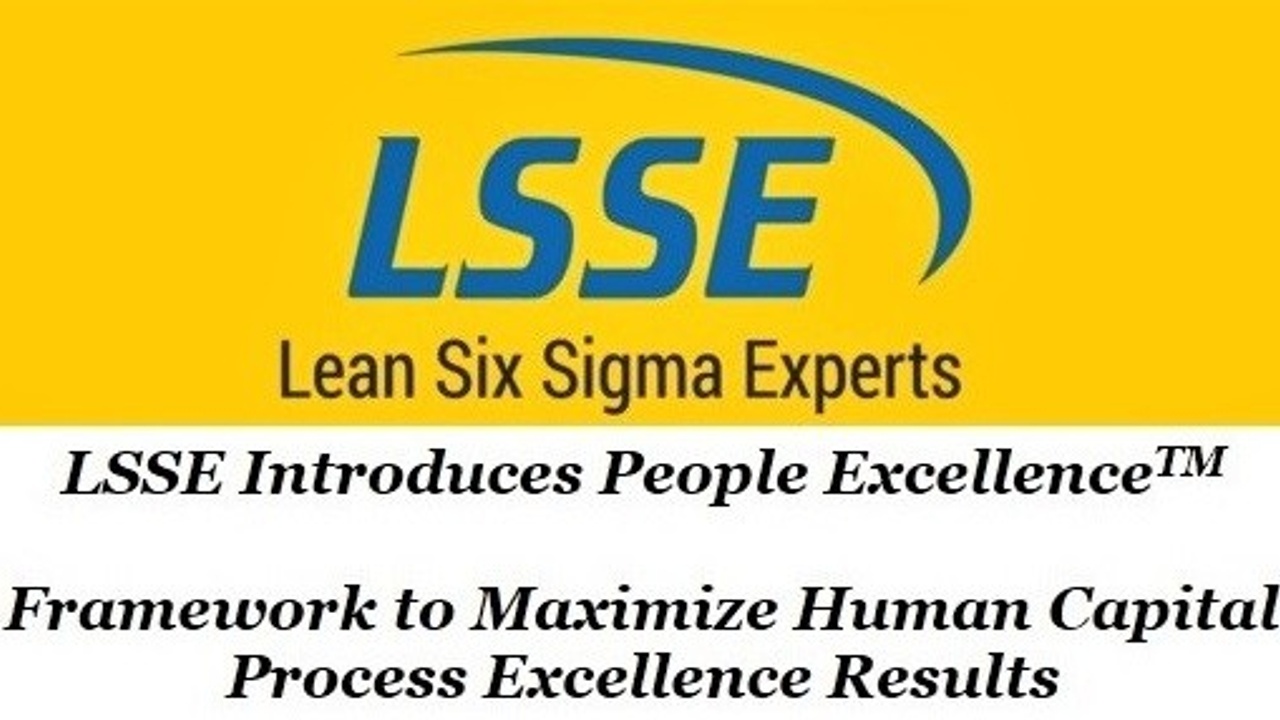Before discussing why people should be certified, first let’s ask the question why is the Lean and Six Sigma methodology important in the first place?
The methodology is important because it provides knowledge and insight into how to make your company run as smoothly as possible while also...

Picture this. It’s a sunny morning, and you cheerfully walk into your company’s break room to get a cup of coffee. When you enter, you instantly see several employees looking uncomfortable. Although they are very carefully trying not to look at the source of the tension,...
Excellence = Process x People
“This change formula simply means that excellent results require establishing the correct process, or technical solution, and equally important is how well the solution is presented to and accepted by the people,” says JP Gnanam, LSSE...
Numerous business leaders have spoken up against using Six Sigma in innovation. This is a classic case of one size does not fit all. Six Sigma should be used where the process is structured and the company is trying to make the process more efficient and effective. Unfortunately, creativity and...
The Lean and Six Sigma methodologies have been around for a long time, however when most people think about or talk about Lean Six Sigma, they are usually referring to its use in manufacturing. Although manufacturing is the forefront for applying these principles, many overlook the benefits of...
Education has made a major shift into online courses and degree programs over the last few years. Completing training and certifications online for Lean and Six Sigma has never been easier and more convenient. 
One major reason online training programs have caught on is because of their...
Most of the Six Sigma or Lean programs that have failed can be attributed to the fact that the company was not ready to implement. Both Six Sigma and Lean requires that the right continuous improvement infrastructure is put in place before the program is launched. Any continuous improvement...
Leadership Support:
If there is one factor that can make or break a successful continuous improvement program, it is top level leadership support. In an article titled “Lean Manufacturing’s Next Life” that was published in ChiefExecutive.Net, the CEO of a sixty-year-old...
In any company there are processes that need improvement. Wasteful activities exist everywhere, from the manufacturing floor, to the HR department. In order to improve business processes, companies must identify activities that are non-value add activities, a key lean concept. By identifying...
Continuous and Process Improvement Strategy
Lean Six Sigma is a continuous improvement methodology that focuses on decreasing lead time by reducing waste and variation. The reduction of lead time results in lower operating costs, higher quality, and increased customer satisfaction.
...
Continuous Improvement in the ITIL World
ITIL (Information Technology Infrastructure Library) is a framework for Information Technology Service Management or ITSM and IT Operations. The first set of best in class practices and recommendations were put together in the 1980s by the UK...
Capability Maturity Model Integration (CMMI)
CMMI is a capability model developed by the Software Engineering Institute (SEI) along with a group of government and industry representatives and is defined as a “non-prescriptive collections of best practices that infuse quality into products...


